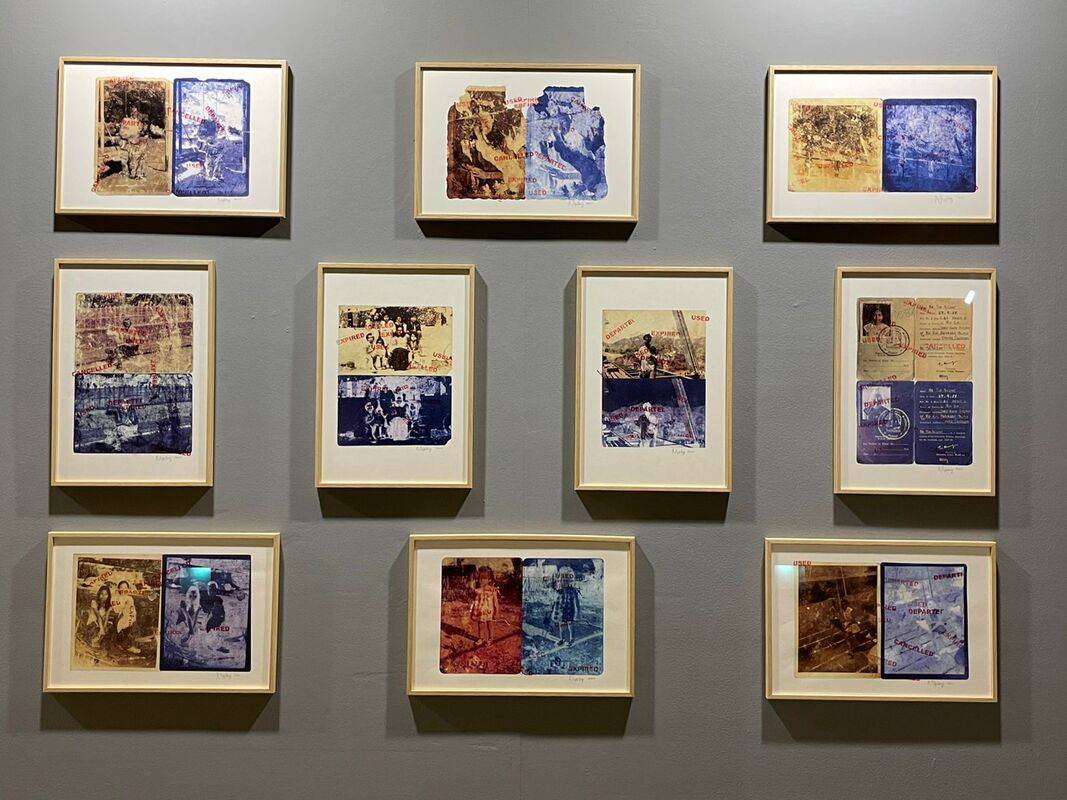Portraying Women
Nge Lay
Intersections takes pride in presenting a curated selection of Nge Lay‘s works, both old and new, that exemplify her bold style and unwavering focus on gender issues. This collection, spanning from 2009 to 2024, is a testament to Nge Lay’s indomitable spirit of freedom. It celebrates her remarkable achievements as a woman artist in exile, whose creativity flourishes even in the face of adversity.
- October 17 -
- October 20, 2024
Asia Now, Monnaie de Paris
A Work Shaped by Buddhist Faith
As a woman from Myanmar, born and raised in a country deeply permeated with Buddhism, I am strongly devoted to Buddhist Philosophy. Therefore, I strive to live in harmony with both Buddhist rules and my family tradition.
Nge Lay Tweet
Artworks
A Tribute to Motherhood
Through motherhood, women embody two essential Buddhist values: loving kindness called “metta” and compassion called “karuna”. In the near future women’s influence will be critical to allow a positive transformation of Myanmar society. Nge Lay, 2012
A Voice for Women
Through my work, I aim to give voice to women's unspoken thoughts and experiences. It's my attempt to convey their innermost struggles to the world, serving as a conduit for their silenced narratives.
Nge Lay Tweet
Futuristic Women of These Days was inspired by the contemporary life of women, which Nge Lay observed as being robotic. Whether due to necessity fo life or to fulfill aspirations for material success, the constant preoccupation with performing their various roles often results in a mechanical life of working from dawn to dusk. In this series, Nge Lay portrays women working at her neighbourhood market as a robots, but also as superheroes – trapped but valiant.
Let Me Out is a powerful depiction of women, the artist included, who find themselves shut out of a society bound by political, economic, social, religious, and sexual It offers a vivid reflection of the complex discrimination that has woven itself into the fabric of Burmese society for generations. The piece exposes the many barriers that continue to constrain women’s lives and opportunities, serving as both a personal statement and a broader critique of longstanding societal norms.
